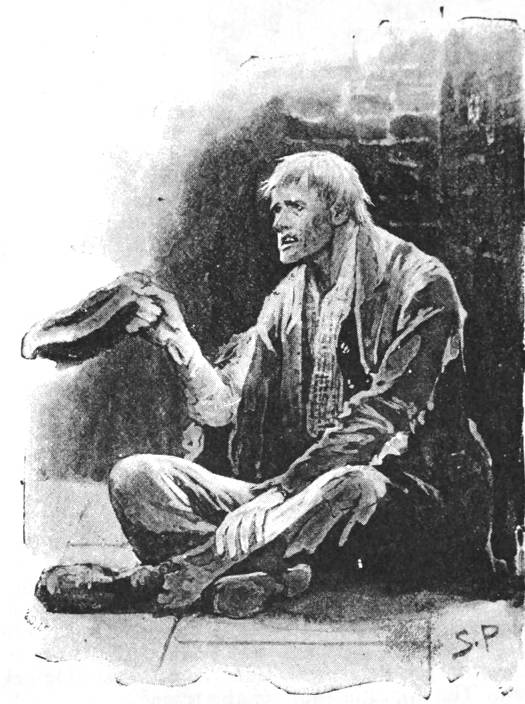Three Beggar’d Tales March 14, 2018
Author: Beach Combing | in : Modern , trackbackThis is a French story about a beggar in London (though recorded in a London newspaper…)
The beggar in question was, it seems, in the habit of sitting at one of our bridges, accompanied by a dog with a placard inscribed ‘Blind’ attached to his neck, and was fortunate enough to awaken the charitable sympathies of a gentleman, who every morning when he passed the mendicant dropped a penny into his hat. One day the usual donation was omitted, and the supposed blind man ran after his benefactor as fast as his crutches would permit, and boldly asked why the usual penny had not been forthcoming. ‘Why, I thought you were blind,’ exclaimed the man of charity, amazed. ‘No, sir, it is not I,’ replied the beggar, ‘it is the dog,’ Taunton Courier (23 Sep 1868)
Beach has come across versions of this tale, but his favourite is the personal experience of a friend, John. John had long given money to the ‘mute beggar of Lyons’, a man who sat in silence by the sidewalk in Lyon, France. Incredibly one day Jon ran into the mute beggar on the streets of Paris, which he was visiting, and the mute was speaking with intense excitement to someone there. ‘But you are mute?’ accused, Beach’s friend. The mute didn’t miss a beat: ‘no, that is in Lyon’.
Finally, a pathetic beggar trick. A memory of what a miserable life many beggars lead.
Professor Drummond tells a very good story of successful mendicant. On his way to the college one morning he saw a wretched-looking woman, with a miserable baby in her arms, gazing wistfully at a dirty piece of bread that was lying inside a railing just beyond her reach. On his approach she asked the loan of his stick to secure the coveted object. After helping to get the bread, and bestowing alms upon her, the professor passed on, but, on looking back, he was amused to see the woman carefully replacing the bread, which seemed to be her stock-in-trade, behind the railing, ready to go through the same ingenious pantomime for the benefit of the next charitably-disposed person who might chance to pass. This may be colled literally living on a crust. Daily Gazette for Middlesbrough, (6 Mar 1890), 4



